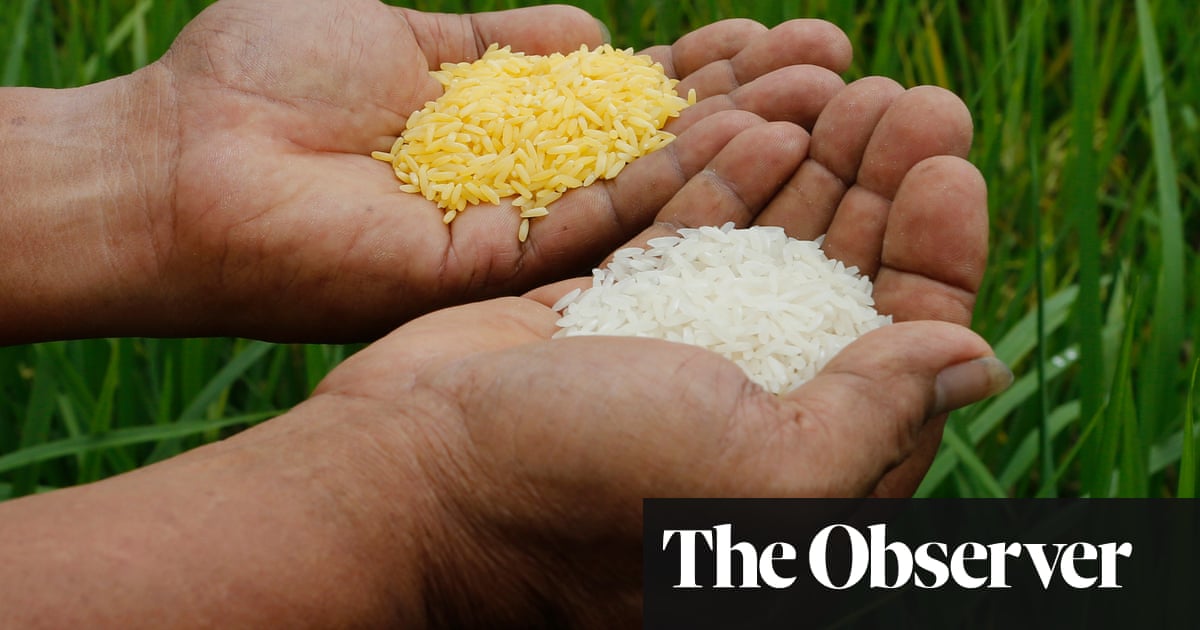Thousands of children could die after court backs campaign group over GM crop in Philippines, scientists warn
Scientists have warned that a court decision to block the growing of the genetically modified (GM) crop Golden Rice in the Philippines could have catastrophic consequences. Tens of thousands of children could die in the wake of the ruling, they argue.
The Philippines had become the first country – in 2021 – to approve the commercial cultivation of Golden Rice, which was developed to combat vitamin A deficiency, a major cause of disability and death among children in many parts of the world.
But campaigns by Greenpeace and local farmers last month persuaded the country’s court of appeal to overturn that approval and to revoke this. The groups had argued that Golden Rice had not been shown to be safe and the claim was backed by the court, a decision that was hailed as “a monumental win” by Greenpeace.
Many scientists, however, say there is no evidence that Golden Rice is in any way dangerous. More to the point, they argue that it is a lifesaver.



Greenpeace, as usual, argues against GM by jesting towards a nebulous cabal of shady globalist BigAg companies. They are endlessly malicious and no amount of benefit can ever be a convincing reason to take even one step back on this issue. This is a classic case of paranoia and it cannot be reasoned with.
A quick reality check on some of those points. Many of them are based on a paranoid belief that the Golden Rice will somehow invade and take over. We are discussing introducing a new variety, not erasing any - farmers will continue to grow other varieties. Thus, many of the arguments about monoculture and control over seed fall apart. Syngenta have excluded smallholder farmers from paying licensing fees, so they’d get the seeds are a reasonable price. Lastly, countries which grow GM also grow organic crops - the farmers fearing losing their licenses are swept up in the paranoia. There is also no evidence of GM genes finding their way into other varieties in any meaningful amount. If this was a common occurrence, maintaining any discrete variety would be impossible (and we’ve been doing it for over a century).
I’m not sure man. You make it sound like crazy conspiracy theories, and they are to some extent. But Monsanto has absolutely sued people for planting their genetically modified seeds, for example https://www.nytimes.com/2013/05/14/business/monsanto-victorious-in-genetic-seed-case.html.
I agree with you (and other posters) that Greenpeace is overblowing the dangers of GMO (though I’m not an expert, not even close, so take this as the uneducated opinion it is). But I still think it’s good they blocked them in this case. To me it’s a fact that these companies will try to use these new crops to exploit the farmers. Because that’s literally the business model of Monsanto and all these fucking companies. And long term that’s worse for the food security of the people in third world countries, no matter what neo liberals say.
I posted a reply by accident lol.
They have, but it’s never really been as bad as “the wind blew the pollen.”
The guy intentionally bought what he knew were Monsanto seeds from a grain elevator to plant in order to get them cheaper. That’s not a problem of “evil corporation sues unwitting farmer”. That’s “farmer tries to circumvent contract he signed.”
They don’t own anything, the modified something that came with the planet, and they want everyone on the planet to be forced to use it, and them to pay them for the privilege. I’ve never been to Msto HQ but I’d give Dollars to Donuts that that is printed on the wall.
Sorry for the late response, busy day hahaha. A few things:
Please don’t get hung out on the particular examole I picked. I just googled Monsanto seed lawsuit and picked the first example. But there are so many many more examples.
I mean, you don’t see that’s the problem I was pointing out exactly? Again, I’m not against GMOs themselves (though again, totally unneducated opinion). My concern, as someone from a third world country, is precisely with the laws and economic pressure these companies use to exploit people in our countries using this technology.
Let me explain how this works in my experience:
If things ended here it would be okish, though I wiould still hate it hahaha. But we all know that companies will always exploit their monopoly positions as much as possible. So this usually ends with even more hunger in our countries even though we now technicslly have better crops. So yeah, I think you are wrong. If our onky options are to continue using old “inneficient” crops, or this shit, I prefer the traditional crops. So good on Greenpeace for blocking this.